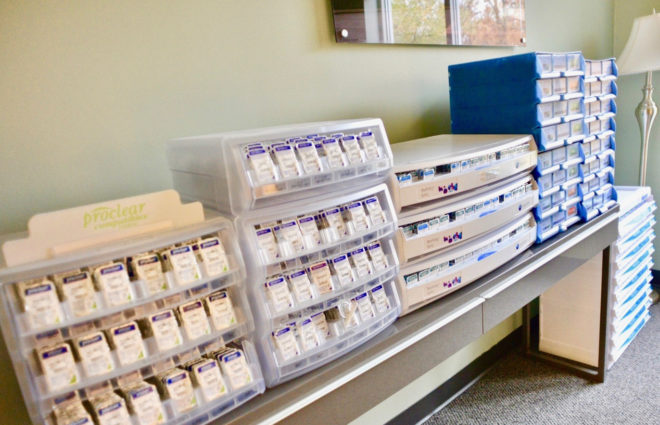
What do you do if your contacts expire? Do you have a fresh backup pair, or will you have to search for your emergency glasses? Knowing when your contacts expire is an important part of caring for your eyes in the short and long term.
The CDC estimates that almost 41 million adults in the US wear contact lenses as a form of vision correction. With soft, rigid gas-permeable, extended wear, disposable options and more, finding the type of contact lens that works best for you can be swift and painless. And because contact lenses sit directly on your cornea and move with your eye, for many they are convenient, comfortable and suitable for most lifestyles.
Proper wear, hygiene and an understanding of contact lenses can help you maintain eye health and great vision. If you find it difficult to keep up with proper wear and hygiene, then you should consider a safer alternative such as glasses or vision correction surgery. If you are a good candidate for vision correction surgery, then contact lenses and glasses may become a thing of the past. Here’s what you need to know:
All contact lenses have a shelf life. According to the Vision Center, contacts expire because the solution in blister packs contains chemicals that break down over time. As the solution loses its effectiveness, lenses dry out and can collect harmful deposits, even if they’re unopened.
Even though your contacts won’t last forever, the expiration date is typically significantly later than the time you receive the prescription. Some contacts don’t expire until three or four years after their issue date! No matter which kind of contacts you wear or the frequency with which you are supposed to change them, always check the expiration date that’s typically printed on the packaging before you throw away the box. If you’re unable to find the expiration date, federal regulation states that contacts are good for one year from the issue date.
It is important to follow the directions on your contact lens packaging and the instructions from your eye doctor. Taking liberty when it comes to the length of wear can put the health of your eye and vision at risk. Protecting your eye health and vision with proper hygiene includes disposing of expired contact lenses rather than wearing them.
If you wear expired contact lenses, you may experience blurry vision, headaches or contract a corneal infection. Even more serious, corneal infections can easily become corneal ulcers. They typically show up for patients who abuse their contact lenses by wearing them beyond the recommended wear length, not cleaning them properly or wearing them overnight even when instructed not to.
If the cornea doesn’t get the proper amount of oxygen, bacteria and infection can form. When white blood cells move to the area and are left untreated, the cornea can become permanently scarred, which could exclude a patient from vision correction candidacy or even lead to loss of vision. Symptoms of contact lens-related eye infections include but are not limited to:
If you accidentally wear an expired pair of contact lenses, remove them immediately. If you notice any of the symptoms mentioned above, contact your eye doctor who prescribed the contacts to schedule an eye exam to ensure there is no infection.
If you’re ready for even more convenience and comfort than contacts provide, it’s time to consider alternatives to contacts. At Providence Eye & Laser Specialists, we specialize in LASIK eye surgery, PRK (Photorefractive Keratectomy) and EVO Implantable Collamer Lens (EVO ICL) while understanding there’s no approach that’s one-size-fits-all:
Each of these procedures offers vision correction benefits, both short-term and long-term, while also eliminating cumbersome monthly contact lens cost, care, the risk of expired prescriptions and more.
With over 20 years of experience and 50,000+ laser vision correction surgeries, Providence Eye can answer your questions and determine if you are an ideal candidate for LASIK eye surgery or other vision correction procedures. At Providence Eye, you can expect exceptional patient care every step of the way, honest and transparent pricing and proven leading-edge technology to ensure the best vision correction results. Are you ready to be free from contacts? Let’s chat.
Schedule a complimentary vision correction consultation to start your journey to clear vision without contacts.